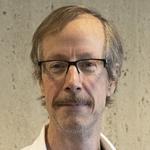Adaptive Capacity and Resilience in the New Arctic: Identifying Pathways to Equitable, Desirable Outcomes for People and Nature Through Convergence
The investigators will conduct a series of workshops that will employ a complex systems framework to gain insight into system dynamics and overall resilience in the Arctic region. Resilience represents the capacity of a community to buffer and adapt to stress and shocks, and thus navigate and even shape change. The workshops will integrate resilience theory and research methods with Indigenous community observations and practice. This integration is needed to address the societal concerns associated with the rapid pace of environmental change in the New Arctic. Diverse expertise will be represented, and the workshop participants will include Arctic Indigenous scholars and community members from climate-affected Alaskan communities.
This series of workshops will employ a complex systems framework to gain insight into system dynamics and overall resilience, which can be defined as the capacity to buffer and adapt to stress and shocks, and thus navigate and even shape change. The workshop will integrate resilience theory and research methods with Indigenous community observations and practice, which is needed to address the societal concerns in the New Arctic. Merging expertise from multiple disciplines through a complex system approach is a robust way to conduct convergent research on a Pan-Arctic scale. Further, the iterative structure of the workshops with local community inclusion and the plan to integrate knowledge from six themes will enhance the convergent outcomes of the workshops. The meaningful inclusion of Indigenous scholars and community members in the workshops makes the project more convergent in that it is not only transdisciplinary science but seeks out issues and information important to Arctic and mid-latitude tribal communities. This project promotes convergence by addressing the societal concern of achieving resilience for Arctic communities and by integrating diverse fields of science through a complex systems approach and through engagement with Indigenous scholars and community members. The range of expertise represented by the participants includes ecosystem science, social science, climatology and system science.
This project will conduct two, three-day workshops in 2018 in Fairbanks, Alaska, with a third workshop funded by and held at the University of Nebraska. The goal these workshops is to convene relevant, disparate expertise on the thematic goals with a diverse group of researchers, practitioners, and stakeholders in the far north and mid-latitudes to understand how transformations in the New Arctic can be managed to reduce inequitable and undesirable outcomes for people and nature. No fieldwork is associated with this project.
Project Outcomes
This project convened a series of three workshops, and a fourth, final writing workshop, where disparate and relevant expertise was brought to bear on our workshop themes with a diverse group of researchers, practitioners, and stakeholders in the Far North and mid-latitudes to understand how transformations in the New Arctic can be managed to reduce inequitable and undesirable outcomes for people and nature. The overarching workshop themes were to: 1) Provide a venue where alternative viewpoints and traditional and disciplinary understanding may be voiced to enhance our knowledge of change in the New Arctic; 2) Explore alternative scenarios resulting from the loss of Arctic resilience that have occurred or are underway, sources of adaptive capacity and pathways for transformation to desired states, and methods to enhance the resilience of desirable states; 3) Develop a framework for assessing risk profiles associated with alternative scenarios for Indigenous Peoples’ and non-Indigenous communities; and 4) Communicate our results with Indigenous and other local stakeholders in the Arctic, and, with local funding, in the mid-latitudes. Our workshops attempted a convergence of expertise within a complex adaptive systems model of the New Arctic. This framework integrates components from Indigenous Peoples’ traditional knowledge, ecology, sociology, psychology, climate sciences, geosciences, computer science, economics, and human health. Importantly, as the Arctic continues to rapidly transform, there is a genuine risk of growing inequity. Indigenous Peoples’ narratives surrounding social, cultural, and economic mechanisms to prevent such inequity are often underrepresented. Our workshops directly addressed this by including listening sessions with Indigenous and other local stakeholders at the outset of the workshop series, with stakeholders invited to attend part or all of the rest of the workshop presentations and discussions. We successfully held four workshops focused on our initial themes and goals. Two of these workshops were held in Alaska (Fairbanks and Anchorage), specifically integrating Arctic perspectives. A third was held in Lincoln, Nebraska, and focused on Arctic-mid-lattitude connections, and included local Indigenous groups and agricultural producers. A fourth, smaller, workshop was held outside of San Francisco, and focused on integration and manuscript writing. The Alaska workshops included listening sessions from Indigenous representatives and opportunities for all participants to express their knowledge and opinions regarding the rapidly changing Arctic. Participants in the workshops presented to the group their own expertise and tools of their trade, framed around the workshop themes to encourage cohesion and stimulate convergence; heard stories of change in the Arctic from Indigenous peoples; participated in roundtable, open forum discussions; broadly sketched out alternative futures to explore various, unscripted paths; and explored aspects of the New Arctic, what convergence means, goals and endpoints of the workshops and novel tools for assessing change. We closed out the convergence process with a fourth workshop to discuss and synthesize both the successes and failures of our Arctic convergence process, as well as a broader discussion about the critical elements necessary for a convergence process, and the challenges and barriers to success. These workshops opened new pathways of discussion, communication and collaboration amongst a very diverse group of participants. Participants reported that the networking and collaborative aspects of the workshops were most useful. Participants included a large number of early career scientists and managers who were able to jumpstart collaborative relationships with more senior personnel, and with indigenous peoples in the Arctic and in Nebraska.

